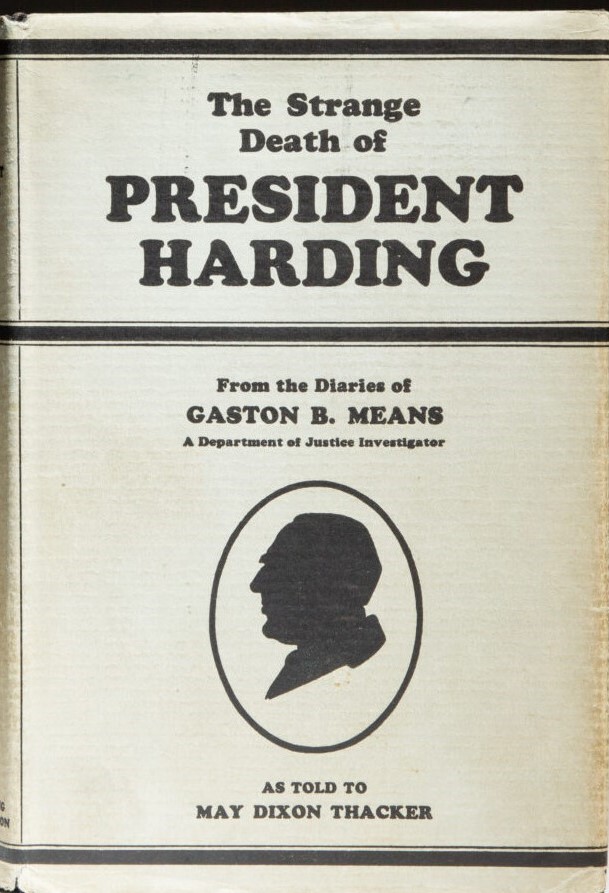Gaston B. Means, The Strange Death of President Harding (1930)
Modern political commentators, who frequently lack the sense of perspective provided by history, often assume that recent developments are unique or unprecedented, when in actual fact similar things have happened before. For example, the modern hysteria surrounding disinformation commonly assumes this phenomenon to be a product of the digital age, when Menzies himself had been subject to arguably the most concerted disinformation campaign in Australian political history, in the notorious and fabricated ‘Brisbane Line’ allegations. Likewise, scandalous accusations levelled against US presidents by people who worked within their administration are nothing new.
The Strange Death of President Harding is an apt example of the latter. A private detective who had a knack for befriending powerful people, in 1921 Gaston Means had been appointed as a special investigator within the newly established Bureau of Investigation (later known as the FBI), during the presidency of Warren G. Harding. Means abused the position, offering to give suspects access to criminal records in exchange for cash, and becoming involved in a major bootlegging operation during the height of Prohibition. Means also spent some time working for the Treasury Department, before being indicted in October 1923 for forging whisky withdrawal permits.
Despite this criminal record, when Means was released from prison and subsequently authored The Strange Death of President Harding along with May Dixon Thacker, he was treated as a reliable Harding insider, and the book quickly became a bestseller. Its main allegation was that Harding, who had died in office at an age of just 57, had been poisoned by his wife Florence with the assistance of the family’s doctor, and that she had confessed this to Means (which could be neither corroborated nor denied as she had also passed away by this point). Her culpability appeared to be corroborated by the fact that she refused to let an autopsy be carried out on the deceased president.
The Harding Administration had been tied to more concrete nefarious affairs, namely the ‘Teapot Dome Scandal’, in which Navy petroleum reserves were leased to private oil companies in exchange for kickbacks received by Interior Minister Albert Bacon Fall, who became the first US Cabinet figure to go to prison. This was weaved into Means’s narrative, as he claimed that Florence had been seeing astrologers, who helped convince her that her husband would be impeached if he stayed in office even 24 hours longer. To add insult to injury, the book also claimed that Harding had been unfaithful to his wife, and that he had even fathered illegitimate children. Which Means said he uncovered using his skills as a private investigator.
Eventually, Means’s co-author Thacker completely repudiated the book, admitting that it had been a ‘complete hoax’ and complaining that Means had not even given her the share of the profits that she had been promised. Neither did Means bother to defend the book’s authenticity, for he quickly moved on to his next con-job, in which he falsely claimed to be in contact with the kidnappers of the Lindbergh baby, and thereby tried to extort a ransom off of a wealthy friend of the famous aviator’s family. For this latest fabrication, Means was convicted and sentenced to 15 years in prison – a term he never completed, as he died in 1938 while still behind bars.
You might also like...
Sign up to our newsletter
Sign up for our monthly newsletter to hear the latest news and receive information about upcoming events.


